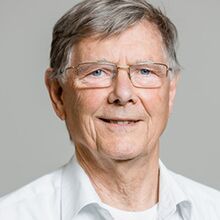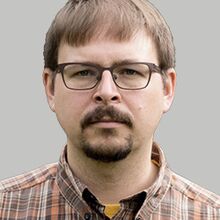Flu Vaccines: Advancements, Challenges, and Global Impact – Expert Insights on Vaccine Platforms and Immune Responses
Ab Osterhaus, Florian Krammer, Carolien van de Sandt
In this phenomenal episode, three leading experts in the field of vaccinology and immunology dive into the science behind various vaccine platforms and immune responses. Tune in as they explore the evolution of vaccines, from early, early vaccine platforms to cutting-edge technologies, and discuss the advantages and disadvantages of each approach. In a dynamic, educational conversation, we hear about the quest for the holy grail, the crucial role of CD8 T-cells, and the global challenges of vaccine accessibility and hesitancy.
Join Professor Ab Osterhaus, ESWI Executive Committee Member and Director of the Center of Infection Medicine and Zoonosis Research at the University of Veterinary Medicine Hannover, Germany; ESWI Board Member Florian Krammer, Professor of Vaccinology at the Department of Microbiology at the Icahn School of Medicine at Mount Sinai in New York, and Professor for Infection Biology at the Medical University of Vienna; and ESWI Associate Member Carolien van de Sandt, Senior Research Fellow, Department of Microbiology and Immunology at the Peter Doherty Institute, Australia in this thought-provoking discussion on the future of vaccines and global health.

Nationality: Dutch
Position: Founding Director of the Center of Infection Medicine and Zoonosis Research and Guest-Professor at the University of Veterinary Medicine Hannover
Research fields: Virus infections of humans and animals
Professor Osterhaus is the Founding Director of the Center of Infection Medicine and Zoonosis Research at the University of Veterinary Medicine Hannover, Germany, and cofounder/CSO of Viroclinics-DDL BV (currently part of CERBA) and ViroNative BV (both spin-outs of Erasmus MC) and CR2O. He was head of the Department of Viroscience at Erasmus MC Rotterdam until 2014.
He has a long track record as a researcher and project leader of numerous major scientific projects. At Erasmus MC, he has run a diagnostic virology lab with more than 40 staff and a research virology lab with over 150 personnel. His research programme follows an integrated “viroscience” concept, bringing together world-leading scientists in molecular virology, immunology, epidemiology, pathogenesis, and intervention studies for human and animal virus infections.
Among his major accomplishments are the discovery of more than 80 viruses of humans and animals (e.g. human metapneumovirus, coronaviruses, influenza viruses), elucidation of the pathogenesis of major human and animal virus infections, and development of novel intervention strategies. This has enabled health authorities like the WHO to effectively combat disease outbreaks like SARS and avian influenza. The established spin-outs are among his other societally relevant successes, allowing effective testing and refining of diagnostic tools and other intervention strategies.
Professor Osterhaus has acted as mentor for more than 85 PhD students and holds several key patents. He is the author of more than 1360 scientific papers in peer-reviewed journals, together cited > 90,000 times with an H index > 145. He holds several senior editorships and has received numerous prestigious awards. He is a member of the Dutch and German National Academies of Sciences, member of the Belgium Academia of Medicine, and Commander of the Order of the Dutch Lion.

Nationality: Austrian
Position: Professor of Vaccinology at the Department of Microbiology at the Icahn School of Medicine at Mount Sinai (New York, USA) and Professor of Infection Medicine at the Medical University of Vienna (Austria)
ESWI member since 2022
Florian Krammer, PhD, graduated from the University of Natural Resources and Life Sciences, Vienna. He received his postdoctoral training in the laboratory of Dr. Peter Palese at the Icahn School of Medicine at Mount Sinai, New York working on hemagglutinin stalk-based immunity and universal influenza virus vaccines.
In 2014 he became an independent principal investigator and is currently the endowed Mount Sinai Professor of Vaccinology at the Icahn School of Medicine at Mount Sinai. He is also the co-director of the Center for Vaccine Research and Pandemic Preparedness (C-VaRPP). Furthermore, since 2024, Dr. Krammer is Professor for Infection Medicine at the Ignaz Semmelweis Institute at the Medical University of Vienna.
Dr. Krammer's work focuses on understanding the mechanisms of interactions between antibodies and viral surface glycoproteins and on translating this work into novel, broadly protective vaccines and therapeutics. The main target is influenza virus but he is also working on coronaviruses, flaviviruses, hantaviruses, filoviruses and arenaviruses. He has published more than 400 papers on these topics. Since 2019, Dr. Krammer has served as principal investigator of the Sinai-Emory Multi-Institutional Collaborative Influenza Vaccine Innovation Center (SEM-CIVIC), which develops improved seasonal and universal influenza virus vaccines that induce long-lasting protection against drifted seasonal, zoonotic and future pandemic influenza viruses.

Dr Carolien van de Sandt is a Senior Research Fellow in the Department of Microbiology and Immunology at the Peter Doherty Institute, University of Melbourne (UoM). Her principal area of expertise is in viral and aging immunology.
Carolien completed her PhD in 2016 at the Erasmus University in Rotterdam (Netherlands) where she investigated the longevity, cross-reactivity and immune evasion strategies of influenza-specific CD8 + T- cells, followed by two years of postdoctoral research in the laboratory of Profs Rimmelzwaan and Osterhaus.
In 2018, she was awarded the prestigious European Marie Sklodowska-Curie Action (MSCA) Fellowship and the University of Melbourne’s McKenzie Fellowship to join the Kedzierska laboratory, where she leads the Aging Immunity Research Program which aims to unravel the mechanisms that underly gain- and-loss- of CD8 + T-cell function across human lifespan.
During the pandemic Carolien temporarily relocated to the Netherlands as part of her MSCA fellowship (2020-2021) where she led her own research team at Sanquin Research studying SARS-CoV-2 immunity in healthy and autoimmune patients. In 2022 she was awarded the ARC-DECRA fellowship to continue her Aging Immunity and T-cell Development Research at the University of Melbourne.
Carolien has >50 publications including in leading scientific journals like Nature Medicine, Immunity, Nature Immunology and Nature Communications. The importance of her work has been recognized by 16 Awards including the Viruses Early Career Investigator Award.




